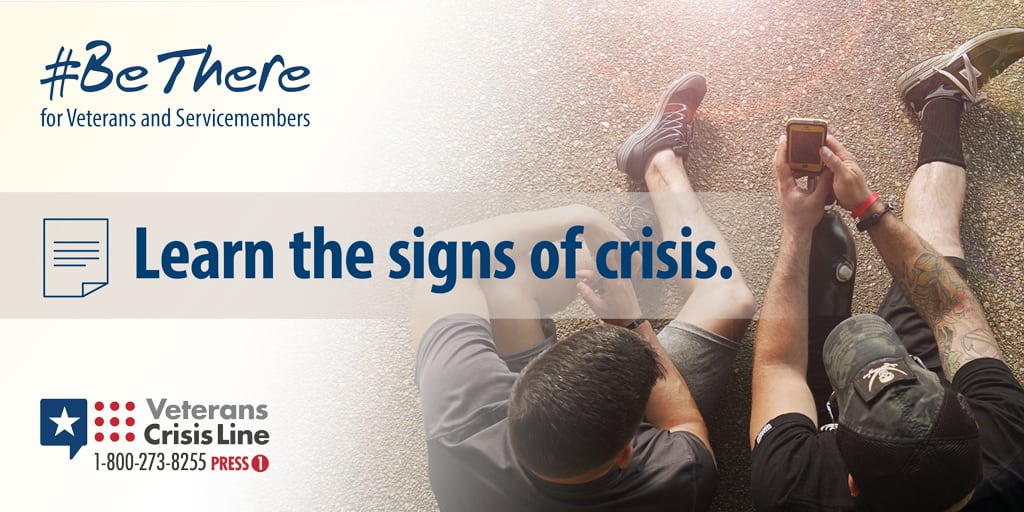The future of major legislation on veterans suicide prevention policy in Congress remains unsettled for now despite claims of a breakthrough this week from Senate leaders and pleas from veterans advocates to pass something on the issue as soon as possible.
At issue are a pair of policy packages under debate in the House and Senate Veterans' Affairs committees. Leaders from both panels have promised to work together to find common ground by the end of the year on the issue, but have also ratcheted up political pressure in recent weeks to bolster support for their own plans.
The first, the Commander John Scott Hannon Veterans Mental Health Care Improvement Act, passed out of the Senate in early August and has received praise from administration officials and veterans advocates as a significant step forward.
RELATED

It would advances plans to award grants to community groups to help with emergency intervention and suicide prevention initiatives — a major goal of President Donald Trump’s Veterans Affairs leadership team — as well as add more mental health staff to the department and improve data collection on a host of issues related to veterans in distress.
On Wednesday, Senate Veterans' Affairs Committee Chairman Jerry Moran, R-Kan., said the bill will help “provide lifesaving measures for veterans at risk” if it becomes law.
“Despite years of investment in mental health care at VA, there is a need for a new approach that places the veterans at the center of the system, putting the focus on new connections and new forms of outreach,” he said. “This bill achieves those goals.”
The Hannon Act took nine months to pass out of committee and another seven months to bring to the Senate floor for full vote. But in recent weeks, senators (both Democrats and Republicans) and veterans groups have attacked House lawmakers for not acting quickly enough on the legislation since its passage in early August, saying that every day of delay potentially costs veterans' lives.
In response, Democratic leaders on the House Veterans' Affairs Committee have said the measure falls short on multiple issues, including several priorities outlined in the president’s new task force on veteran suicide prevention earlier this year.
They include more discussion of gun safety policies for suicidal veterans, improved outreach to minority veterans, and automatically enrolling transitioning troops in VA health services.
RELATED

House Committee Chairman Mark Takano, D-Calif., has also expressed concerns on the community grant program outlined in the Senate bill, saying money could be sent to organizations that lack proper training in dealing with veterans facing mental health or emotional crises.
“We know that neither reports nor studies are sufficient enough to swiftly and comprehensively reduce veteran suicide,” he said. “Instead, Congress must pass legislation that includes forceful provisions to mitigate known suicide risks and meaningfully reduce suicide deaths among veterans.”
On Thursday, the House committee reviewed 31 separate bills designed to amend the Hannon Act, including more training for VA police, a new structure for suicide prevention programs within VA, and the other priorities leaders said were excluded in the Senate bill.
A day earlier, Moran said he had reached a deal with Takano to bring the Hannon Act to the House floor without any amendments for a vote later this month. But on Thursday, Takano said no such deal had been reached.
Veterans groups worry that the lack of a clear path forward could jeopardize the chances of any significant suicide prevention proposals passing this year, given the shortened congressional schedule due to the November elections.
“It would be completely irresponsible if the 116th Congress ends its legislative work this December without having at least passed this bill,” said Jeremy Butler, CEO of Iraq and Afghanistan Veterans of America, in testimony on Wednesday. “There has been plenty of talk but not nearly enough action to address the worsening crisis of veteran suicide.”
Butler said he supports most of the House-backed proposals, but supports fast-tracking the Hannon Act to ensure some progress on the issue. Both the House and Senate panels released their own lists of groups supporting their legislative plans, urging the other to prioritize moving ahead in a cooperative way.
RELATED

House Veterans' Affairs Committee ranking member Rep. Phil Roe, R-Tenn., echoed that urgency.
“The clock has mostly run out,” he said. “The committee has spent two years talking about making suicide prevention a priority. Now is the time to prove that.”
Amid that disagreement, Veterans Affairs leaders this week issued a statement in support of quick passage of the Hannon Act (legislation they had opposed late last year) and declined to appear at Thursday’s House Veterans' Affairs Committee hearing.
“Secretary (Robert) Wilkie and I both agree that addressing veteran suicide is our top priority, and yet only one of us is here today,” Takano said, offering a long list of other top department officials who also declined to testify on possible changes to the Hannon Act.
Moran said he was committed to reviewing those potential changes, but wanted to pass them as a separate vehicle. For now, that plan is still under negotiation between the two chambers.
Only 25 legislative days remain on the House calendar in 2020. Lawmakers will have to reintroduce all of the bills in the next congressional season if they do not become law by the end of the year.
Veterans experiencing a mental health emergency can contact the Veteran Crisis Line at 1-800-273-8255 and select option 1 for a VA staffer. Veterans, troops or their family members can also text 838255 or visit VeteransCrisisLine.net for assistance.
Leo covers Congress, Veterans Affairs and the White House for Military Times. He has covered Washington, D.C. since 2004, focusing on military personnel and veterans policies. His work has earned numerous honors, including a 2009 Polk award, a 2010 National Headliner Award, the IAVA Leadership in Journalism award and the VFW News Media award.





